Afcon 2023: Schedule, dates & draw for stars including Mohamed Salah & Andre Onana
- Published
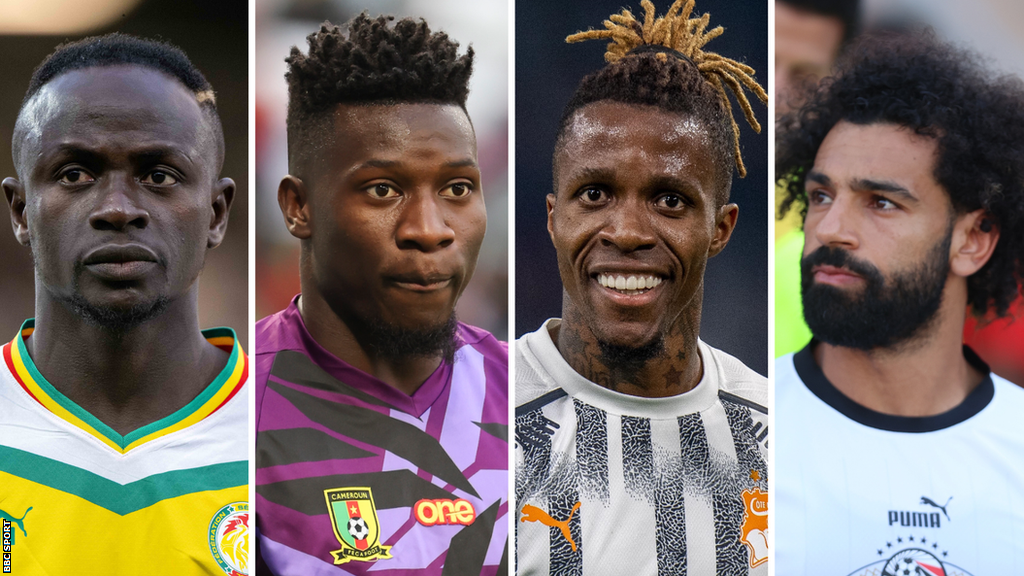
(Left to right) Senegal and Al-Nassr striker Sadio Mane, Cameroon and Manchester United goalkeeper Andre Onana, Ivory Coast and Galatasaray forward Wilfried Zaha and Egypt and Liverpool talisman Mohamed Salah all hope to star at Afcon 2023
The teams heading to Ivory Coast for the finals have been confirmed, but do you know when the 2023 Africa Cup of Nations (Afcon) is and how it affects players and clubs in the Premier League and around the world?
For almost a month in January and February, some of the biggest stars in football will be hoping to win the biennial tournament organised by the Confederation of African Football (Caf).
Defending champions Senegal can call upon ample firepower through the likes of Al-Nassr striker Sadio Mane and Chelsea newcomer Nicolas Jackson, while Egypt - the most successful team in Afcon history, with seven titles - are captained by Liverpool's Mohamed Salah.
Here's what you need to know about the schedule, including the draw and when players could be absent from domestic competitions.
When is Afcon 2023?
The 34th edition of Afcon takes place from 13 January until 11 February 2024.
It is the second time Ivory Coast has hosted the finals, having also welcomed Africa in 1984.
Originally scheduled to be held in June-July 2023, the tournament was moved due to fears about playing it in the rainy season.
Despite the fact it will now be played in 2024, it has kept 2023 as part of its official title.
The opening match will feature the hosts, nicknamed the Elephants, against one of the Group A opponents they are drawn against.
The top two teams and the four best-ranked third-placed teams from the six initial groups will advance to the round of 16, with quarter-finals, semi-finals, a match for third place and the final to follow.
The Alassane Ouattara Stadium in the Ivorian capital Abidjan will host the final on 11 February.
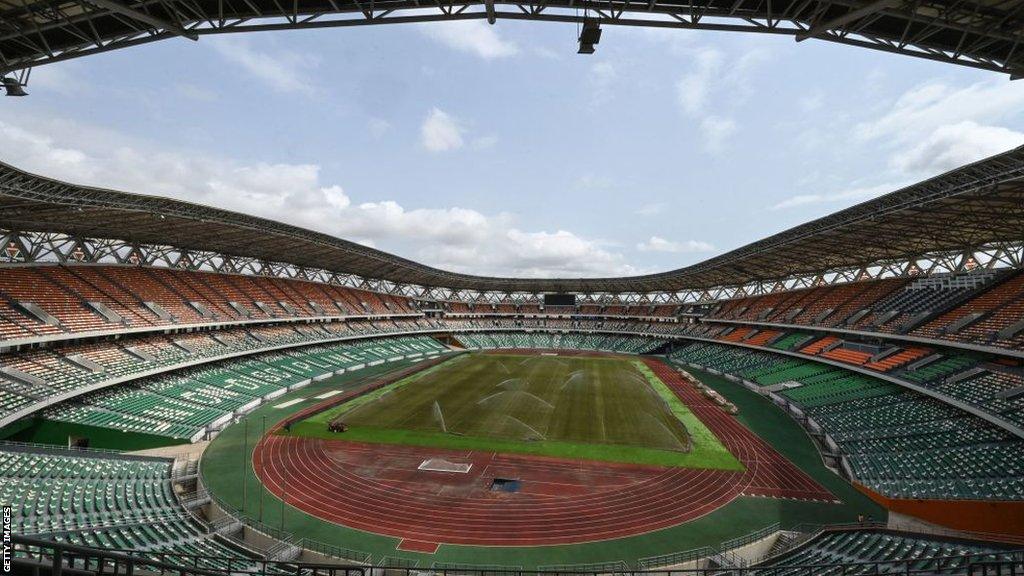
The Alassane Ouattara Stadium opened in October 2020 and is the home stadium of Ivory Coast's national team. It will host the final of the Africa Cup of Nations on February 11
What happened in qualifying?
This Nations Cup will feature 24 nations for a third time, after the competition was expanded in 2019.
Although Ivory Coast are hosts, they still took part in qualifying, finishing second to Zambia in Group H. Those two nations are joined by a further 22 teams who also finished in the top two of their final qualification groups.
All of the teams taking part have been involved in at least one of the past two tournaments with the exception of Zambia, the 2012 champions, who are appearing for the first time since 2015, and Mozambique, making their fifth appearance and first since 2010.
Central African Republic came closest to being the latest country to reach a maiden Afcon but missed out after losing their final fixture in Ghana, having been ahead.
Pierre-Emerick Aubameyang's Gabon were probably the biggest nation to miss out, having featured at three of the last four finals.
When is the Afcon draw and how does it work?
The Afcon draw will take place in Abidjan on 12 October at 1900 GMT.
Based on the latest Fifa world rankings, the 24 teams have been allocated to four pots, external. Although Ivory Coast are currently ranked as the ninth-best nation in Africa, they have been included in pot one.
POT ONE - Ivory Coast (*50), Morocco (13), Senegal (20), Tunisia (29), Algeria (34), Egypt (35)
POT TWO - Nigeria (40), Cameroon (41), Mali (49), Burkina Faso (58), Ghana (60), DR Congo (64)
POT THREE - South Africa (65), Cape Verde (71), Guinea (81), Zambia (82), Equatorial Guinea (92), Mauritania (99)
POT FOUR - Guinea-Bissau (106), Mozambique (113), Namibia (114), Angola (117), The Gambia (118), Tanzania (122)
(*Fifa ranking in brackets)
The teams will be drawn in six groups of four. Before the draw, the games in each group will already have been allocated to a set location, although this information is still to be confirmed.
Six stadiums in five cities will be used:
Alassane Ouattara Stadium, Abidjan (capacity 60,000)
Felix Houphouet Boigny Stadium, Abidjan (capacity 33,000)
Stade de la Paix, Bouake (capacity 40,000)
Amadou Gon Coulibaly Stadium, Korhogo (capacity 20,000)
Laurent Pokou Stadium, San Pedro (capacity 20,000)
Charles Konan Banny Stadium, Yamoussoukro (capacity 20,000)
Normally star-studded affairs, Caf always makes sure to invite legends of African football past and present to their draws.
Expect to see Ivorian heroes such as Kolo and Yaya Toure in attendance, both of whom played as the Elephants beat Ghana to claim a second Nations Cup title for their country in 2015.
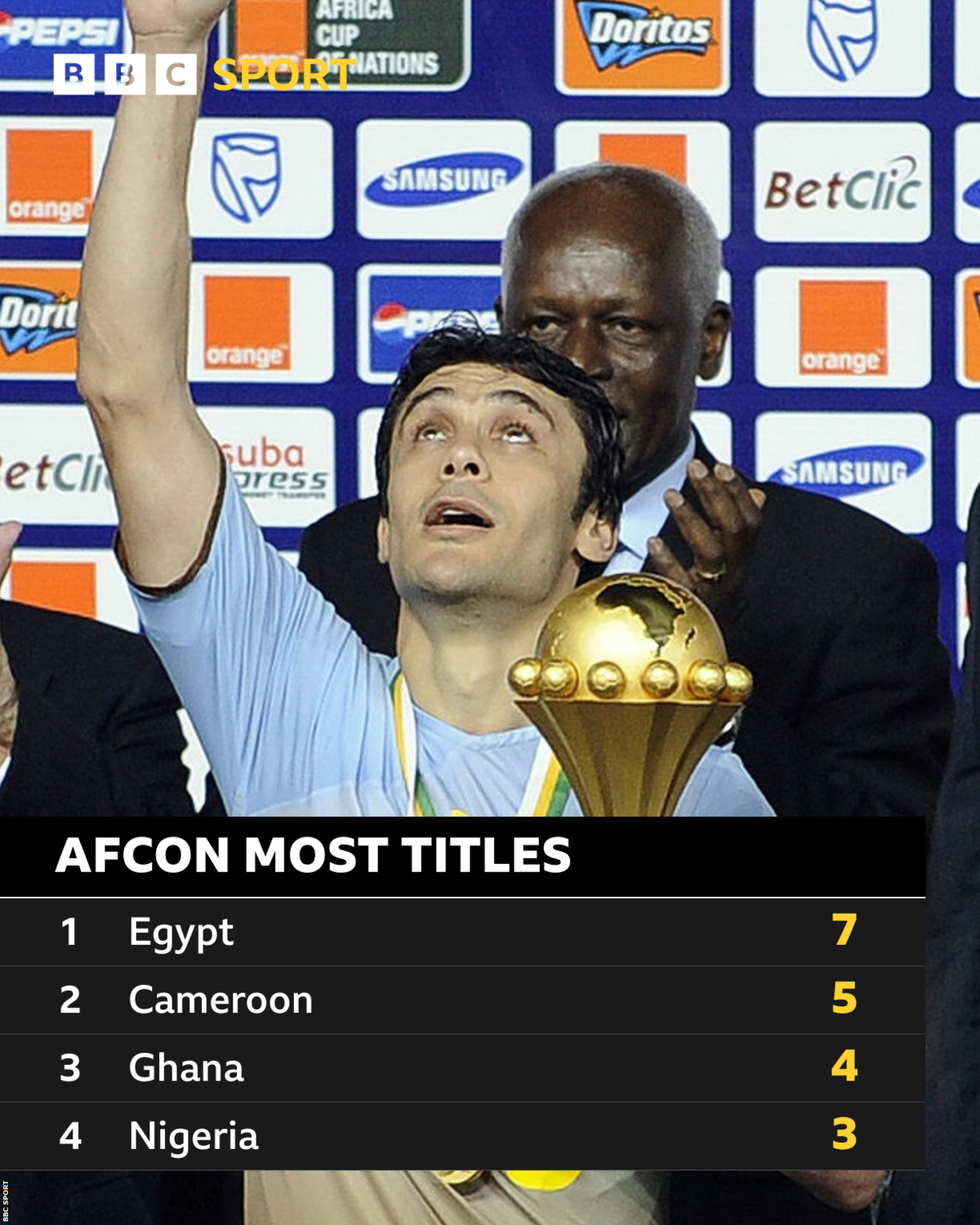
Kamel Ahmed Hassan captained Egypt to the most recent of their seven Afcon titles in Angola in 2010
When could Premier League stars be away?
Here's a guide to the approximate matchdays and cup dates that players could miss, depending on how far their country goes at Afcon, subject to scheduling changes and cup runs.
Winter break: 15-28 January
Potential final club match: Weekend of January 6/7 (FA Cup third round)
Minimum number of matches missed: One (Premier League)
Maximum number of matches missed: Eight (four Premier League, FA Cup fourth round, Carabao Cup semi-final first and second legs, Champions League last 16 first leg)
Possible return date: 27 January (group stage exit), 4 February (last 16), 11 February (quarter-finals), 18 February (semi-finals or final)
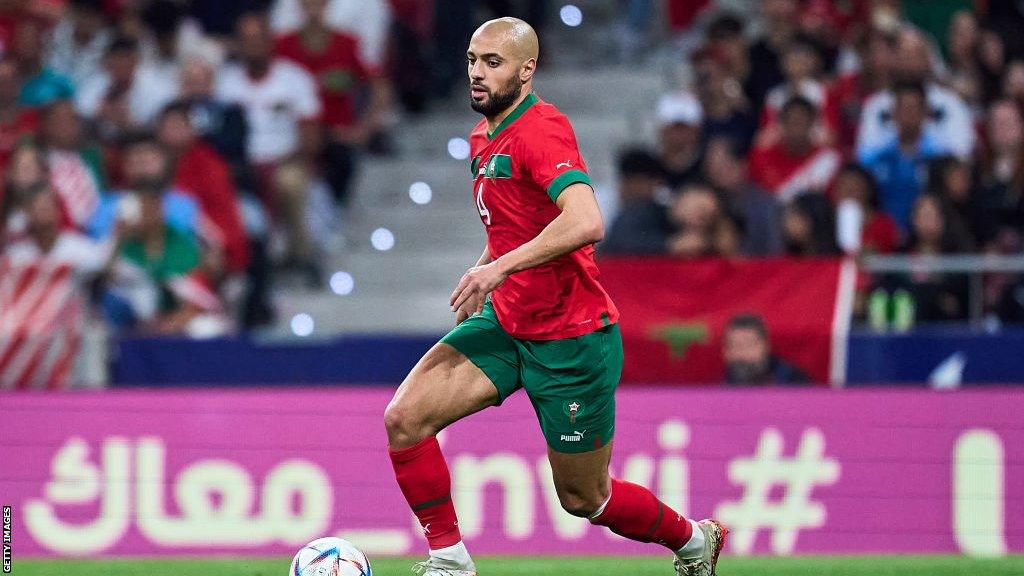
Midfielder Sofyan Amrabat shone for Morocco at the 2022 World Cup and joined Manchester United from Fiorentina on loan in September
What about Saudi Arabia and other leagues?
Here's a guide to approximate dates in Saudi Arabia and the major European leagues.
Saudi Pro League
Winter break: 29 December - 14 February
Potential final club match: 28 December (Pro League)
Minimum number of matches missed: None
Maximum number of matches missed: Three (Saudi Super Cup semi-finals and final, Asian Champions League last 16 first leg). Due to the winter break, players will not miss any Pro League matches
Possible return date: Saudi Super Cup games in January (group stage exit), 17 February (knockout stage exit)
Spanish La Liga
Winter break: 22 December - 1 January
Potential final club match: Weekend of 6/7 January (Copa del Rey round of 32)
Minimum number of matches missed: Two (La Liga)
Maximum number of matches missed: Eleven (five La Liga, Copa del Rey last 16, quarter-final, semi-final first leg, Supercopa de Espana semi-final and final, Champions League last 16 first leg)
Possible return date: 27 January (group stage exit), 4 February (last 16), 7 February (quarter-finals), 17 February (semi-finals or final)
Italian Serie A
Winter break: None
Potential final club match: Weekend of 6/7 January (Serie A)
Minimum number of matches missed: Two (Serie A)
Maximum number of matches missed: Eleven (Six Serie A, Supercoppa Italiana semi-finals and final, Coppa Italia last 16 and quarter-finals, Champions League last 16 first leg)
Possible return date: 27 January (group stage exit), 4 February (last 16), 7 February (quarter-finals), 17 February (semi-finals or final)
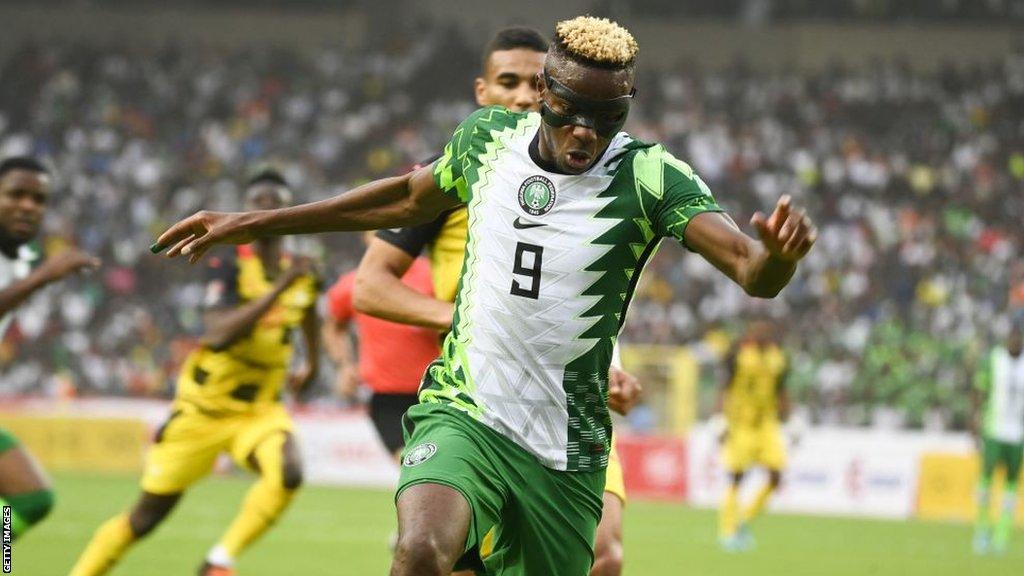
Napoli striker Victor Osimhen is a star in Serie A and was the runaway top scorer in Afcon qualifying, netting 10 times for Nigeria
French Ligue 1
Winter break: 21 December - 13 January
Potential final club match: Weekend of 6/7 January (Coupe de France last 32)
Minimum number of matches missed: Two (Ligue 1)
Maximum number of matches missed: Eight (Five Ligue 1, Coupe de France last 32 and last 16, Champions League last 16 first leg)
Possible return date: 27 January (group stage exit), 4 February (last 16), 7 February (quarter-finals), 16 February (semi-finals or final)
German Bundesliga
Winter break: 18 December - 11 January
Potential final club match: Weekend of 16/17 December (Bundesliga)
Minimum number of matches missed: Two (Bundesliga)
Maximum number of matches missed: Seven (Five Bundesliga, DFB-Pokal quarter-finals, Champions League last 16 first leg)
Possible return date: 27 January (group stage exit), 4 February (last 16), 7 February (quarter-finals), 16 February (semi-finals or final)